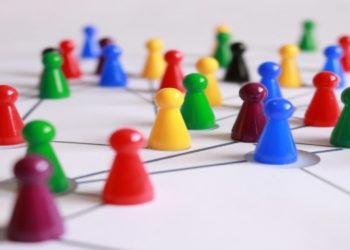Student government plays a vital role in educational institutions, serving as the bridge between the student body and the administration. It offers students the opportunity to represent their peers, advocate for their needs, and contribute to the betterment of their school or college community. Beyond its functional role, student government is a powerful platform for developing leadership skills, which are crucial for personal and professional growth.
Leadership is a skill set that is increasingly valued in today’s world. Whether in academics, the workplace, or community involvement, strong leadership abilities can set individuals apart and open doors to numerous opportunities. Participation in student government provides a unique environment where students can cultivate and refine these skills in a real-world context. This article explores how being involved in student government can help students upgrade their leadership capabilities, offering insights into the specific areas of growth and the long-term benefits of this experience.
For students who are balancing their academic workload with extracurricular activities like student government, it’s important to manage their time effectively. Sometimes, the demands can become overwhelming, and students may need to prioritize certain tasks. In such cases, the option to pay for papers written by professionals can be a practical solution, allowing students to focus on developing their leadership skills while ensuring their academic responsibilities are met.
Understanding the Role of Student Government
Student government is an essential institution within schools and colleges, typically composed of elected representatives who are tasked with advocating for the interests of the student body. The roles within student government can vary, from president and vice president to treasurer and secretary, each carrying its own set of responsibilities. These roles mirror those in real-world government or corporate structures, providing a valuable framework for students to learn and practice leadership.
Moreover, the skills developed in student government are transferable to any future leadership role. For instance, the ability to communicate effectively, negotiate with stakeholders, and lead a team are all skills that are highly sought after in the workplace. For students who might be tempted to pay for paper writing services to lighten their academic load, participating in student government offers a practical alternative: gaining hands-on leadership experience that can enhance their resumes and future career prospects.
Developing Communication and Public Speaking Skills
One of the most significant aspects of leadership is the ability to communicate effectively. Whether you are addressing a large audience, leading a small team, or negotiating with administrators, strong communication skills are essential. Student government provides numerous opportunities for students to develop and refine these skills, particularly in the areas of public speaking, debating, and negotiating.
For those juggling multiple responsibilities, the temptation to pay for paper writing might arise as a way to manage time. However, the experience gained through active participation in student government—especially in developing communication skills—can be far more valuable in the long run. These skills not only help in academic settings but also prepare students for future leadership roles where effective communication is key.
Participation in student government, therefore, offers a practical and enriching way to develop leadership skills, including communication and public speaking, which are critical to success in any field. While the option to use a paper writer might be convenient, the personal and professional growth that comes from engaging in student government is an investment in one’s future leadership potential.

Enhancing Decision-Making and Problem-Solving Abilities
Effective leaders are defined by their ability to make informed decisions and solve problems efficiently. In student government, members are often faced with situations that require quick thinking and sound judgment. Whether it’s deciding how to allocate funds for a school event, resolving conflicts within the student body, or navigating the complexities of school policies, these experiences help students sharpen their decision-making and problem-solving skills.
Student government provides a real-world platform for students to practice these skills in a safe environment. For example, when a student council is tasked with planning a major event, they must consider various factors such as budget, logistics, and the interests of the student body. This process involves brainstorming, evaluating options, and making decisions that will impact the entire school community. Through these experiences, students learn to weigh pros and cons, anticipate potential challenges, and develop creative solutions.
While these responsibilities can be daunting, they are also immensely rewarding. The ability to think critically and solve problems is a key leadership trait that will serve students well in their future careers. For those who may feel overwhelmed by the demands of both academic work and student government, the temptation to pay to write paper can be strong. However, it’s important to recognize that the skills developed through active participation in decision-making and problem-solving within student government are far more valuable than simply opting to pay to do my paper or rely on others to complete assignments.
Building Teamwork and Collaboration Skills
Leadership is not just about making decisions and taking charge; it’s also about working effectively with others. In student government, members must collaborate with a diverse group of students, faculty, and administrators to achieve common goals. This requires strong teamwork skills and the ability to lead and motivate a team.
Moreover, student government provides opportunities to work with people from different backgrounds and perspectives, which enhances students’ ability to collaborate in diverse environments. For those who might consider the option to pay to write a paper as a way to manage their workload, it’s worth noting that the experience of leading and working within a team offers unparalleled growth in collaboration skills, which are crucial in any leadership role.
Learning Time Management and Organizational Skills
Balancing the demands of student government with academic responsibilities requires excellent time management and organizational skills. Students in leadership roles often find themselves juggling multiple tasks, such as planning events, attending meetings, and completing schoolwork. This experience teaches them how to prioritize their time effectively and stay organized.
Time management is a critical skill for any leader. In student government, members learn to set deadlines, manage their schedules, and allocate time for various responsibilities. This experience is particularly valuable because it mirrors the challenges faced in the workplace, where leaders must balance multiple projects and responsibilities.
For students who feel the pressure of balancing these responsibilities, the option to pay someone to write your paper might seem appealing. However, the skills gained from managing time and staying organized in student government are invaluable. These skills not only help students succeed in their current roles but also prepare them for future leadership positions where effective time management is essential.
Preparing for Future Leadership Roles
The leadership skills developed through student government participation are directly transferable to future career opportunities. Many successful leaders in various fields, from business to politics, began their leadership journey in student government. The experience gained in this setting provides a solid foundation for future roles that require strong leadership abilities.
Student government offers a unique environment where students can practice and refine their leadership skills, making mistakes and learning from them without the high stakes of the professional world. The confidence and competence developed in student government often translate into success in future leadership roles, whether in the workplace, community organizations, or other areas of life.
In conclusion, participating in student government is one of the most effective ways to upgrade leadership skills. The real-world experience gained in this setting equips students with the tools they need to succeed in their future careers and beyond.
David Prior
David Prior is the editor of Today News, responsible for the overall editorial strategy. He is an NCTJ-qualified journalist with over 20 years’ experience, and is also editor of the award-winning hyperlocal news title Altrincham Today. His LinkedIn profile is here.













































































